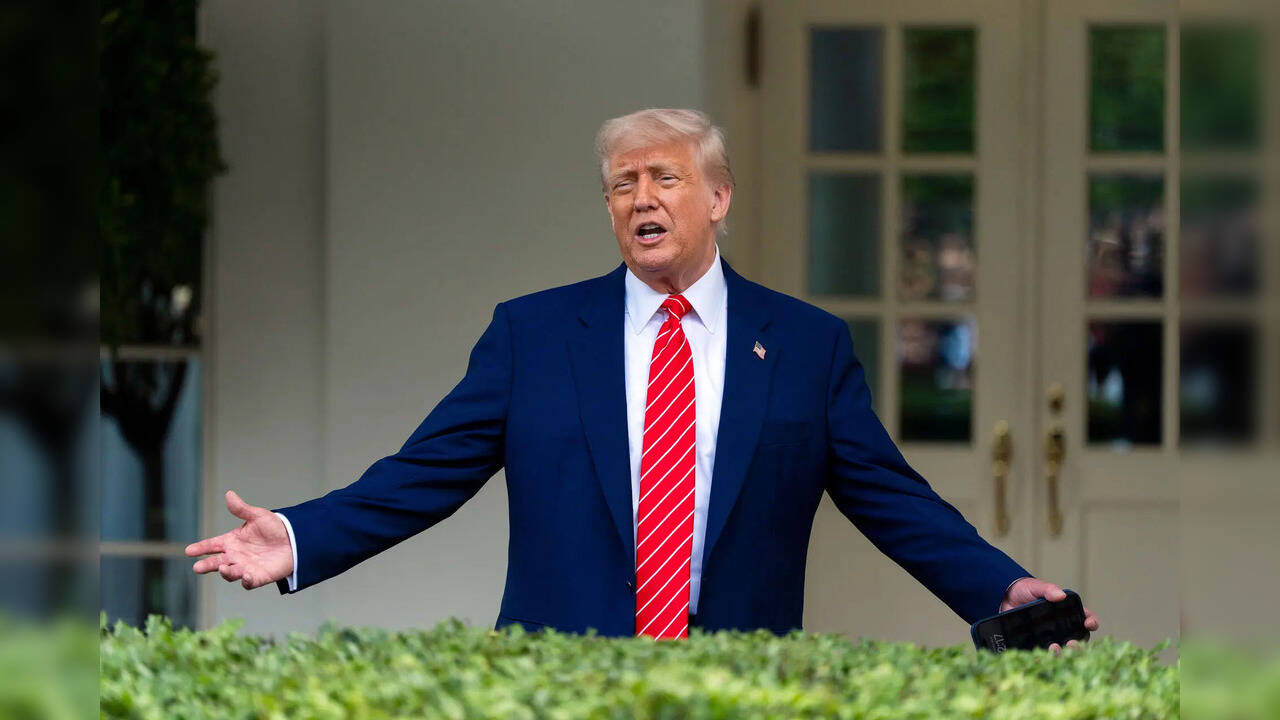In 2017, after pledging not to discuss business with his heirs, Eric Trump told Forbes his father would still receive financial updates “probably quarterly.” (AP Photo/Alex Brandon)
Former U.S. President
Donald Trump continues to exert significant influence over his international business interests, according to a filing submitted to British regulators in April 2025 by his company. The document, titled “notice of individual person with significant control,” reveals that
Trump retains authority over Golf Recreation Scotland Limited, the entity that controls the Trump
Turnberry golf resort—one of his most prized overseas properties.
The filing describes Trump, born June 1946, as someone who “has the right to exercise, or actually exercises, significant influence or control over the activities of a trust.” That trust—the Donald J. Trump Revocable Trust—serves as the holding vehicle for nearly all Trump Organisation assets, including Turnberry. The document confirms that, despite public statements and optics suggesting a hands-off role, Trump has retained a commanding grip on the entire business structure.
The “nature of control” section further outlines that the trust’s designated trustees, namely Donald Trump Jr. and former Trump executive
Allen Weisselberg during Trump’s presidency, wield authority over the company.
Eric Trump served as the trust’s advisory board chairman. Yet, the structure effectively allowed Donald Trump to delegate day-to-day decision-making while maintaining overarching control.
This admission contradicts years of Trump’s attempts to distance himself from the management of his business empire while in public office. In 2017, after pledging not to discuss business with his heirs, Eric Trump told
Forbes his father would still receive financial updates “probably quarterly.” Around the same time,
ProPublica revealed documents suggesting Trump could access funds from the trust at any time.
During his presidency, Trump frequently visited and promoted his properties, including Mar-a-Lago, which he referred to as the “winter
White House.” In one instance, his U.S. ambassador to the UK reportedly explored whether the British government could steer The Open Championship back to Turnberry—last held there in 2009.
Additionally, Trump made headlines for attempting to host the 2020 G7 summit at his Doral resort in Miami. In December 2024, a filing with the U.S. Securities and Exchange Commission reaffirmed that Trump remains the sole beneficiary of the trust.
Even when publicly claiming to have stepped away, Trump hinted at continued involvement. At a 2017 press conference, he said, “I hope at the end of eight years, I’ll come back and say, ‘Oh, you did a good job.’ Otherwise, if they do a bad job, I’ll say, ‘You’re fired.’”
His influence extends to legal decisions within his organisation. After replacing ethics lawyer
Bobby Burchfield with
William Burck during his term, Trump recently hinted on social media that Burck should be removed. Within hours, Eric Trump confirmed the Trump Organisation had indeed severed ties with the lawyer.
In response to the British corporate filing, a Trump Organisation spokesperson stated, “This was a simple administrative update. The structure of the business has not changed.” The White House did not respond to requests for comment, but when approached last month about tariffs’ impact on Trump’s business, a spokesperson said, “The president’s assets are in a trust managed by his children while he is working overtime to lead the country to economic prosperity.”
Despite repeated assertions of separation, the latest UK regulatory filing makes it clear: Donald Trump has never truly let go of the reins of his financial empire.


